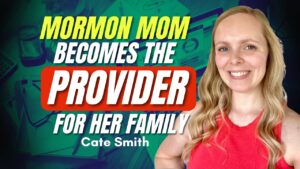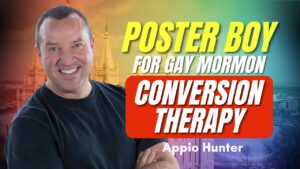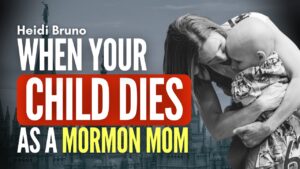 In this podcast, Heather Olson Beal interviews Nicole Hardy, author of the stunningly beautiful memoir, Confessions of a Latter-day Virgin, with readers and fans Claire, Mel, and Maren.
In this podcast, Heather Olson Beal interviews Nicole Hardy, author of the stunningly beautiful memoir, Confessions of a Latter-day Virgin, with readers and fans Claire, Mel, and Maren.
From amazon.com:
When Nicole Hardy’s eye-opening “Modern Love” column appeared in the New York Times, the response from readers was overwhelming. Hardy’s essay, which exposed the conflict between being true to herself as a woman and remaining true to her Mormon faith, struck a chord with women coast-to-coast. Now in her funny, intimate, and thoughtful memoir, Nicole Hardy explores how she came, at the age of thirty-five, to a crossroads regarding her faith and her identity. During her childhood and throughout her twenties, Nicole held absolute conviction in her faith. But as she aged out of the Church’s “singles ward” and entered her thirties, she struggled to merge the life she envisioned for herself with the Mormon ideal of homemaker, wife, and mother. Confessions of a Latter-day Virgin chronicles the extraordinary lengths Nicole went to in an attempt to reconcile her human needs with her spiritual life — flying across the country for dates with Mormon men, taking up salsa dancing as a source for physical contact, even moving to Grand Cayman, where the ocean and scuba diving provided some solace. But neither secular pursuits nor church guidance could help Nicole prepare for the dilemma she would eventually face: a crisis of faith that caused her to question everything she’d grown up believing. In the tradition of the memoirs Devotion and Mennonite in a Little Black Dress, Confessions of a Latter-day Virgin is a mesmerizing and wholly relatable account of one woman’s hard-won mission to find love, acceptance, and happiness – on her own terms.Other essays address important topics, such as fertility, motherhood, adversity, womanliness, callings, revelation, missions, agency, the Relief Society, and Heavenly Mother.
Please support Mormon Stories by purchasing the book through this link.




32 Responses
I am sympathetic with the challenges of a person of faith trying to reconcile their individuality with the mainstream cultural standards of their religious community. I have friends in Jewish and other Christian denominations that have similar challenges. I expect there are Muslims, Hindus, Buddhists, and followers of pretty much all religious traditions with this struggle. I don’t see easy answers to this . Orthodoxy and respect for tradition are the bedrock that sustains just about any human organization. Our innate tribalism binds together those that revere the orthodoxy and expels those that don’t.
In our faith community, I do think we can aspire to an ideal of greater inclusiveness. Our stories like Jesus ministry to the unclean people of his day and Peter’s vision of the unclean animals can inspire greater adherence to this ethic and I think we could do more to socialize these ideals.
Progressive-minded people can also demonstrate greater tolerance for the conservative among us. Hardy writes that “The Mormon Church is a system of absolutes. There is only one right way to live.” Her absolutist interpretation of our Mormon faith tradition is ironically as absolutist as the faith culture she criticizes. While I don’t disagree that there is an abundance of Mormon rhetoric that leans this direction, my day-to-day participation with the average Latter-day saint leaves considerable latitude for those (like me) who don’t conform to the cultural mainstream, but still desire participation in the community and are spiritually nurtured by their association.
You are correct. You can really believe whatever you want to as a member. Just please pay ten percent and we will let you believe anything!
“Just pay 10%” is cynical and not my experience. Yes, tithing is an absolute doctrine, but I have never heard or seen money as the driving force that allows for special accommodations if you pay. Just sounds like an angry ex-mo.
Mike, she is right in that it is a one size fits all, absolute thing i the church. Find me a quote that tells a story of a woman finding happiness in doing something outside of motherhood or being a wife. Find me a quote that says some people shouldn’t be a parent, married or go on a mission because it wouldn’t be a good idea because of their physical or psychological problems or just for the plain reason that they don’t want to.
“How can I tell her that over the past 2 years I have willed myself into depression. The relief of numbness, that saving grace. How can I say I’m glad to feel myself withering. That I can almost stop needing what I can’t have if I don’t allow myself to feel anything.”
That almost perfectly describes how I feel as a 28 year old virgin. I want to not need sex or a relationship because it seems impossible to have those things, but those needs are always there. Sometimes I can make the pain go away if I can just distract myself with lots of mindless TV or by sleeping all day. Vigorous physical activity sometimes helps too. Any bitterness I feel towards the church is mainly due to finding myself in this situation. I was so repressed for so many years that I don’t see a way to recover from it and live a normal life.
David, thank you for sharing. There are a lot of things in your comment that I can relate to. I hope that somehow we can both find happiness.
Thanks for your comment. It is nice to know someone can relate. I hope we can find happiness too.
You’re not alone, David. I think too many of us are in that boat.
Makes me wonder how Sheri Dew might feel about this topic. Nicole, what would a conversation between you and her be like? As two perfectly honorable women, who chose different paths, would there be any middle ground?
When I was attending BYU one of my professors was a single LDS woman in her upper 50’s, who had never married. One time when I was in her office, I had the courage to ask her why she never married, and her very candid response was incredibly painful to hear, yet a very eye-opening experience.
Well, what was her response?
@George you left me hangin there bud. What did the woman say?
Sorry, so we were talking about the importance of education and how the Lord expects of us to grow intellectually in this earth and such. Then I said, Dr. Adams (not her real name of course), how does a fine, educated, good looking woman such as yourself, find herself single?
Immediately after I said that, I was like, oh boy, I’m in seriously deep trouble now. I mean, here is a 25 yr. old married dude, hitting on his 50+ yr. old professor, in the middle of finals week! But of course, that was not my intent and I was genuinely intrigued.
Her response was even more shocking and said. “You know, no one has ever asked me this quite in the same manner as you. Thank you for your interest.” She then proceeded to explain to me that she felt her educational pursuits created a huge barrier, and that the more educated she became, the less interested LDS men were. This is, of course back in the 60’s. But even more shocking, was when she said–and I am paraphrasing now–that she had in fact, along the way, considered alternatives, but that in the end she decided to stay true to her LDS faith.
That’s the part that was very painful to hear. I was literally fighting back tears. Here is this fine, spiritual, intelligent, and very well educated woman, who longed for the ultimate human experience of togetherness, companionship and love, and yet, somehow she was deprived of such.
No man or woman should ever feel confined to a human existence devoid of the very thing that makes us human. If we do, at best, we end up with a situation like Dr. Adams, and at worst, we end up with horrific crimes being committed, such as in the case of Catholic Priests, particularly as in the case of “father” Marcial Maciel.
LDS men haven’t changed much. I was told in my master’s program that few guys would want me not only because of my master’s but because of my student loan debt.
However, you might want to also recognize that “why aren’t you married? You’re an attractive, educated person!” is a microaggression.
I found this very sad and self indulgent. I didnt get married until I was in my late 30’s and understand well the challenge and heartache. This interview, however, I quickly grew tired of the victimization and cynical view of the church.I found that it in no way reflected my experience. Of course there are people in the church who dont understand the challenge. Of course you are going to encounter ignorance. But if you learn the gospel and the doctrine and how to connect to the Savior so that you can learn and be blessed by him it could have been a different experience. There is a perfect quote by CS Lewis that summarized the tone and spirit of this panel and how they see the past.
“Son,’he said,’ ye cannot in your present state understand eternity…That is what mortals misunderstand. They say of some temporal suffering, “No future bliss can make up for it,” not knowing that Heaven, once attained, will work backwards and turn even that agony into a glory. And of some sinful pleasure they say “Let me have but this and I’ll take the consequences”: little dreaming how damnation will spread back and back into their past and contaminate the pleasure of the sin. Both processes begin even before death. The good man’s past begins to change so that his forgiven sins and remembered sorrows take on the quality of Heaven: the bad man’s past already conforms to his badness and is filled only with dreariness. And that is why…the Blessed will say “We have never lived anywhere except in Heaven, : and the Lost, “We were always in Hell.” And both will speak truly.”
So because it didn’t reflect your experience, she doesn’t understand the gospel?? That’s not at all condescending…
Interesting to hear the story of Nicole. The gal that got married at 19 sounded very condescending and belligerent. Getting married at 19. Typical mormon girl baby factory. Nicole rocks! You go girl.
Condescending and belligerent to whom?
Thanks for the name-calling. :/
Did I understand Nicole you made clear while dating that you did not want children? Thus you seem to be angry at a religion that values families so highly? I Really need to think why you may see yourself as a victim of a culture where vast majority of the men want children? Than you seem to want to have a cynical view about the culture you rebelled against? Than you don’t respect men in the culture that values children? Finally your expectations and judging the people in the culture and expecting them not judge you. hmmm,,,,,little help here.
Well expecting to be be judged for asking for clarification. I think it is good you have found your way and peace in your life. Norman boreman characteristic tells me a lot about your tolerance towards good men who choose to marry women that match their life aspirations.
I did enjoy the pod-cast always gives opportunity to think about how we all have such a range of feelings thoughts.
Zack–to clarify, yes, I was truthful about not wanting children. Though I’m not sure where you heard anger. What I felt was grief, loss, frustration. I talk a lot, in my book, about what was beautiful and affirming in my faith. I was devastated to find myself no longer able to find a valued identity in the LDS church. I cannot be the only person, male or female, who has waited for the desire to set in, for children, and found it’s not there. I hope readers will consider the complexity of my story–not just decide that I was angry, and I rebelled. That line of thinking makes it very easy to dismiss me, but it simply isn’t the case. Either way, thank you for listening. I realize it’s not a comfortable conversation, and I appreciate that you were open to hearing it.
I find your honesty admirable. Thanks for your thoughtful response. I hope the compassionate Heavenly Father of your Childhood that you struggle to have faith in (at least it is the one I was taught about)loves you as your earthly father does. I feel compassion about your story, but I understand why the men of our faith want a companion that will bring children in to their lives.
May your path find you many years of satisfaction and happiness. If you were my child, I would pray to the God that I have chosen to have faith in, that my daughter would someday be lead back in the fold.
Sounds to me you have a father that loves you unconditionally.
One last question, asked in sincerity and kindness: why the urge to talk to me as if I were your daughter? Something to consider: single people in the church, particularly women, are often infantilized, not treated as fully grown by virtue of their singleness. This is one of the main reasons we/they feel devalued. I’m a 42 year old woman–my intellect, my needs, my experiences, desires, and concerns are a woman’s, not a child’s. So I’d prefer you offer me what you’d offer a contemporary, as that’s what we are. (And if you were my son, I’d pray that you’d continually allow your perspective to widen, to cultivate an increased empathy for others, as it seems you have already begun.) My best to you in your journey, as well.
Yeah, I didn’t hear (in the podcast) nor read (in the book) anger. I felt a wide range of emotions, but anger was most definitely not primary.
I am thinking that people who are raised Mormon often hear anger when ANY kind of firm disagreement with their ideals takes place. In my own home, my husband (who was raised Mormon) would say that contention is of the Devil and in any case in which I disagreed passionately it was assumed I was bringing the devil in my home. My experience says that Mormons are often not taught how to disagree and not find it contentious, wrong, or anger inducing. Just a thought.
Gail, actually if you read the posts it appears me that those that believe are most constrained and more compelled to being thoughtful. I agree with nichole and I accept her encouragement to widen my perspective. I appreciate her engaging and I accept she may not have the feelings I assumed.
You maybe painting the “Raised Mormon” with broad Brush, in turn doing the very thing than you see in them.
One last thought, when an argument is made by adding things, buligerant, intolerant, bigoted, these words are ment to silence or berate the thinking of someone you are disagreeing with.
This has been a tough podcast to listen to. On one hand, it is very easy to understand the desire to break out of a pre-defined role and have freedom, but at the same time, it might not be completely reasonable to expect the church to love you for it.
As an almost 41 year old male virgin, who’s name is still on the church roles, I do understand the desire for companionship and sex very much. But the best part of Christian theology, IMOH, is the concept that good people do not use other people. I’ve not run into a workable “friends with benefits” scenario, and to spite being athletic and still being flirted with be girls on a regular basis, have made a DECISION to forgo family for the time being because I refuse to be responsible for other people’s lives without a solid financial basis for it.
I’m considered a pretty big disappointment by many of my friends in the church despite some relatively exceptional achievements and to be honest, I’d be surprised if it were not so. From their standpoint, I am either selfish or lack the faith that God will provide. I feel intuitively that life is much more complicated than either of those two answers, but the very nature of religion is to make answers simple – for better or worse.
It is totally reasonable to ask for personal path in life that caters to personal variation and preferences, BUT much like all the Tea Party/Financial Sector Billionaires – who expect us to love them after they robbed us blind, it might not be reasonable to expect everyone to honor us for a choice that calls their positions and choices into question.
A choice made for self, will always lack the security and group support of a choice made that benefits the group. Why do you think the army was so against allowing gays in? The last thing they wanted were people who, by nature, question the status quo.
Check the donation lists. Those so-called “Tea Party/Financial Sector Billionaires” did not donate to the GOP the last few election cycles, and definitely not to pro-Constitution Tea Party causes. They don’t call Obama “President Goldman Sachs” for nothing. And slandering the military as well. You’ve obviously never been a soldier, airman, Marine, or seaman. There are countless stories of battles won and innovations made because of people, who, by nature, had questioned the status quo.
But don’t let your personal feelings get in the way of facts.
I think Christ is an example of “atonement” not because he married while studying at BYU, raised 5 beautiful children, is a fantastic architect, and does his hometeaching, but because he accomplished so much as a single adult who did not want to get married. He was ostracized when he visited his hometown, in Mark 6, “Are not his sisters here with us?”, “A prophet is not without honour, but in his own country, and among his own kin, and in his own house”. In Mark 3 when Jesus was preaching they said, “hey – your brothers and mother are waiting for you” he then turned to the multitude and said, “behold my mother and my brethren”. Jesus really taught a tribal family connected not by dna but by a new binding material of faith and hope for those perceived as the lowest and most ostracized in society. Jesus’ view of marriage was different than what is taught in the LDS faith, he said the children of “this world” marry, but if you want to accomplish a higher mission in the next world and be accounted worthy to obtain more, they “neither marry, nor are given in marriage.” Jesus was an apocalyptic essene-like peripatetic healer who sincerely believed the apocalypse was near and the “Son of Man” would come soon. If the LDS faith currently does not believe the doctrine that Jesus was married before the resurrection, and if marriage was an optional ordinance which Jesus chose not to receive – then why require it of Nicole Hardy?
I think it’s wrong to say that we *have* to experience sexual relationships to be considered fully human. The need for it is a very human one, yes. And the lack of human touch is REALLY hard–when I’m near my family, I hug them and we have normal human contact, but normally I might go months without touching another human being even in a non-sexual contact. I completely agree that sensuality–in a non-sexual way–is an important part of human existence.
But I DO think that saying that those of us who have never had sex aren’t fully human–which I hear ALL THE TIME in MoFem circles–is exactly the same reinforcement of church paradigms. As you said later in the podcast, church culture says “you’re not an adult yet” to me, a 39-year-old woman, just because I haven’t gotten married. Saying that I’m not fully human if I haven’t had sex yet is the same kind of marriage privilege, just without the marriage. Which is what I get every week at church and in most Mormon spaces, including ones that are ostensibly aware of privilege issues. It’s two sides of the same coin.
It bugs me that this is such a common belief in the church, because then I’m looked at as an alien for just living my life. I’m not asexual, and I do agree that you end up numbing yourself, and that IS a problem. But I think it’s equally problematic to say that therefore the state of being sexually active is better, which just re-creates and reinforces the hierarchy that already exists.
Also, 22 minutes in, it becomes all about the married women. Which is always what happens in discussions of single women’s issues (or it becomes about gay marriage). Can’t we have ONE discussion of single women’s issues without it becoming all about the privileged people yet again? I can’t tell you how many Mormon feminists tell me that they think somehow I have the better side of things because I never got married, because they got married and followed the plan and aren’t happy. ALL women in the church are told that our value comes from a man in our life–except that YOU get that validation at church, and we get treated like children. So yes, your value *should not* be determined by your relationship to a man or whether you have kids. But it’s not about you. And my gosh, I’m so tired of hearing married women say how jealous they are of my single life.
I am quite late to this thread but I will share anyway.
Nicole’s piece in the NY Times affected me deeply. I wept when I read it. It was the first time I had ever considered that I could choose a different path for myself. It still took me two more years, but finally I left the Church because I did not want a life of emotional and physical isolation. I stopped waiting for God to fulfill my promises in the afterlife and decided to fulfill my promises now as best I can in this life, the one I know for sure I have.
It was a painful decision, but now, at 31, I am excited to create the life I want; a life that includes meaning, possibility, love and connection. And yes, sex.
I admire Nicole for publicly sharing such a private and painful struggle. Her NY Times essay and her memoir affected me profoundly. I would never tell anyone to leave their faith but I admit I wish more single women (and men) could see how beautiful it is to choose your own path.
Nicole,
I soooo felt your pain of not fitting into the Mormon mold and eventually having to leave Mormonism behind.
I soooo understand the lds cultural expectation of getting married and having children.
It was informative to hear the women’s side of women’s role in the church.
Mike
* ….”to hear the women’s view of the women’s role in the church.”